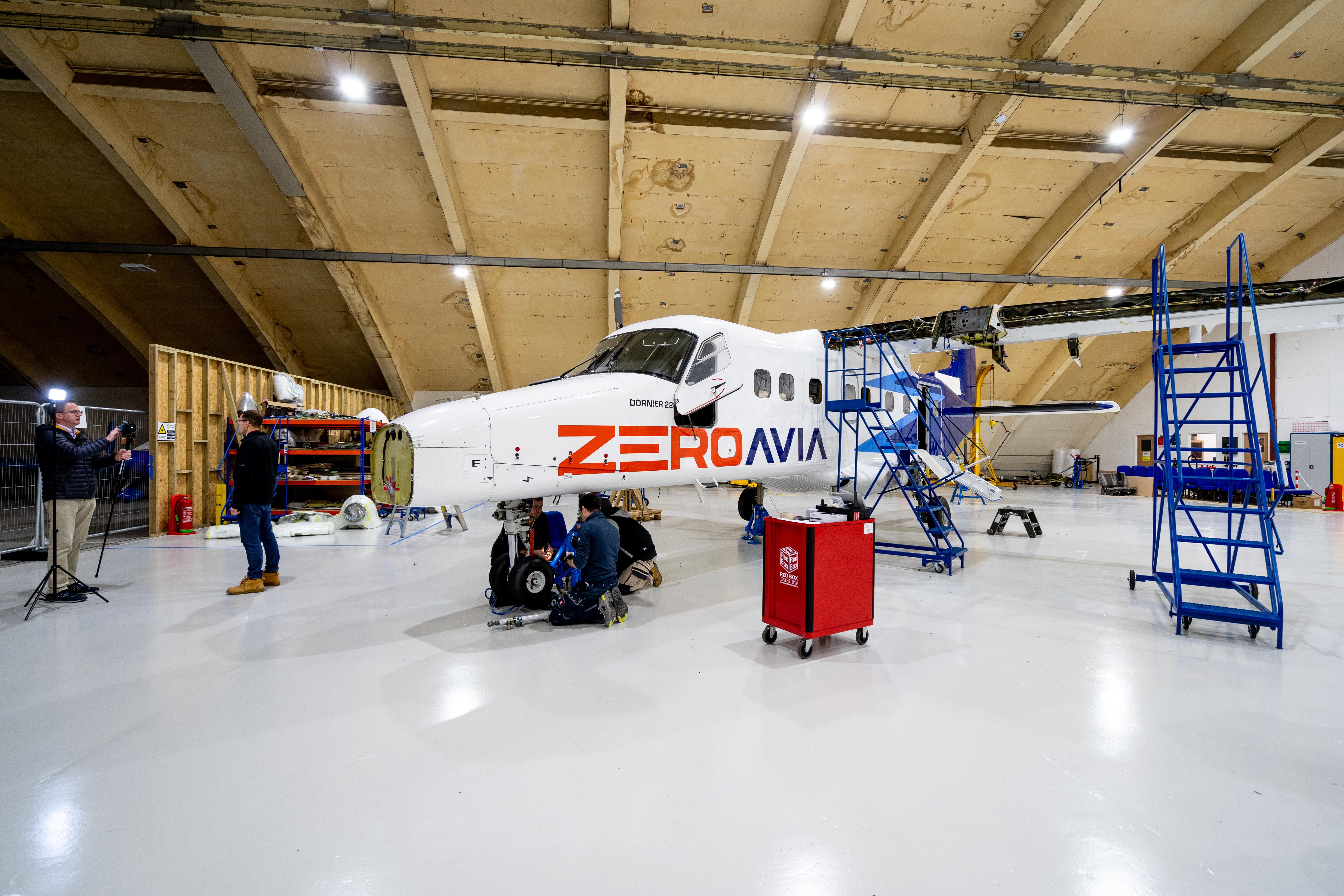
Credit: ZeroAvia
Startup ZeroAvia has partnered with India’s Hindustan Aeronautics (HAL) to develop a supplemental type certificate (STC) for its conversion of the 19-passenger Dornier 228 regional turboprop to hydrogen-electric propulsion. ZeroAvia has also signed an agreement with Irish cargo airline ASL Aviation...
Subscription Required
This content requires a subscription to one of the Aviation Week Intelligence Network (AWIN) bundles.
Schedule a demo today to find out how you can access this content and similar content related to your area of the global aviation industry.
Already an AWIN subscriber? Login
Did you know? Aviation Week has won top honors multiple times in the Jesse H. Neal National Business Journalism Awards, the business-to-business media equivalent of the Pulitzer Prizes.
